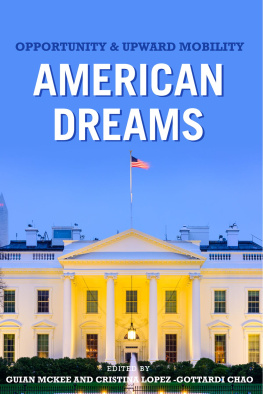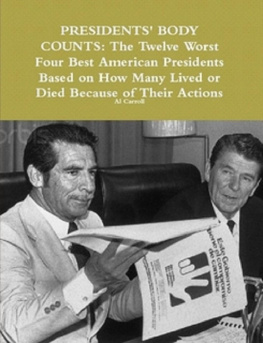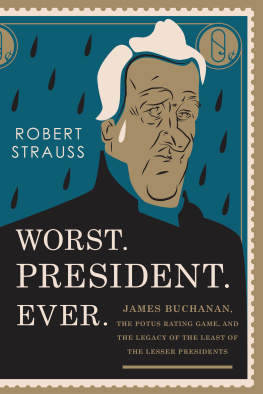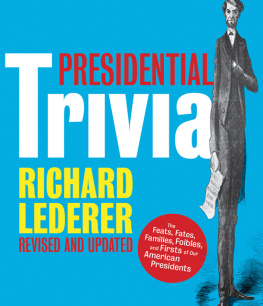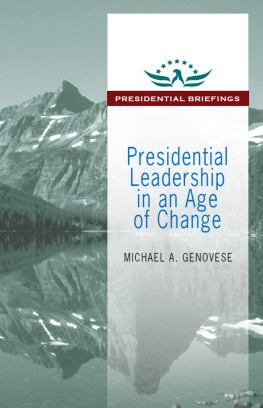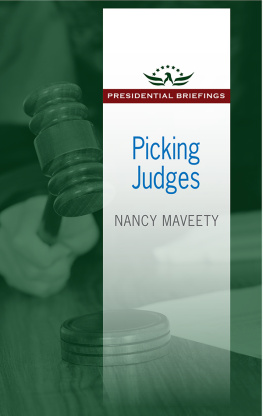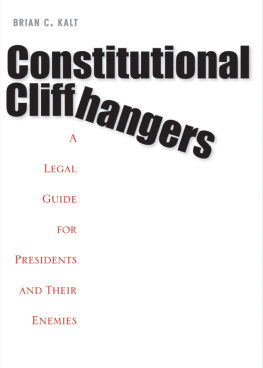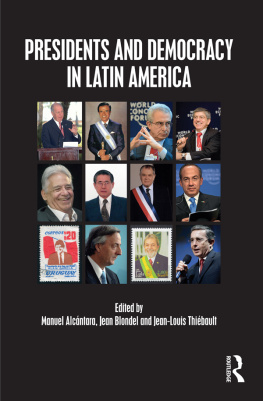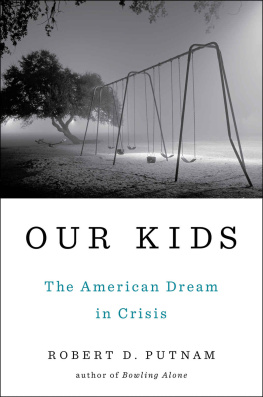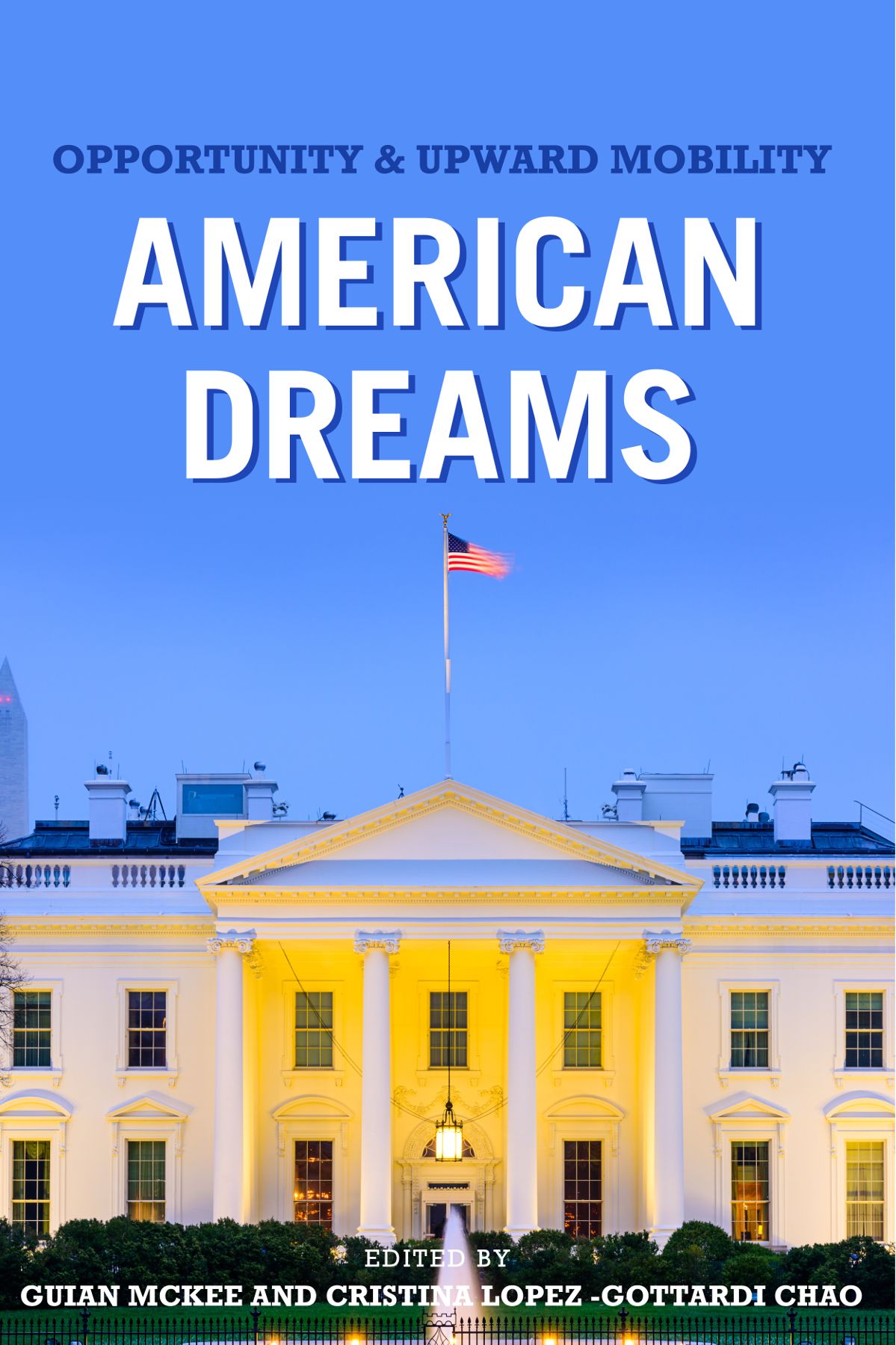
MILLER CENTER STUDIES ON THE PRESIDENCY
MARC J . SELVERSTONE , EDITOR
Miller Center Studies on the Presidency is a series of original works that draw on the Miller Centers scholarly programs to shed light on the American presidency past and present.
THE FIRST YEAR PROJECT
American Dreams
Opportunity and Upward Mobility
Edited by Guian McKee and Cristina Lopez-Gottardi Chao
University of Virginia Press
Charlottesville and London
Contents
Peter Wehner
William A. Galston
Robert C. Pianta
Richard Schragger
Margaret OMara
Melody Barnes
Michael Nelson
Concerns about opportunity and mobility were defining issues in the 2016 presidential campaign, and in many ways explain the unexpected election of Donald J. Trump. Since the 1970s, Americas middle class has experienced a decline in size and overall wealth, a challenge made worse by the global recession of 20089. Economic shifts related to globalization and deindustrialization have also been at play. Together these factors have had significant ramifications for the nations sense of economic and social security, and for the bedrock of Americas working class. As the nation enters a new political phase in 2017, anxiety about the future of the American Dream will remain a central concern. How President Trump addresses this challengebeginning in his first year in officewill be critical to the success of his presidency.
Many Americans now believe that their children face a future of vastly diminished expectations. The American promise, that a good life can be achieved through hard work and playing by the rules, no longer feels assured to many. This sense is particularly acute among millennials, with only about half believing the American Dream is still alive and well. Faced with the rising cost of housing and education, decreased social and economic security, racial inequality, a competitive global economy, and changes in the very nature of work, they may not achieve the standard of living enjoyed by their parents and grandparents, let alone do better.
According to a 2015 Pew study, Americans in middle-income households have lost significant ground in the last four decades, including their status as the nations economic majority. More specifically, between 1970 and 2014 the share of aggregate income of middle-class households fell by 19 percent, making the pain of this sector very Yet rural America has done even worse, a phenomenon that helped fuel Donald Trumps rise to power. During this same period, an additional complicating factor was the nations unprecedented increase in wealth for upper-income households, as well as growth in the total number of lower-income families.
Unfortunately, the political discourse about such issuesmuch less the policies proposed and implementedhas failed to address these challenges. Our leaders have proved unwilling to ask hard questions about why the American Dream seems to serve fewer and fewer Americans, and about what can be done to secure the dream for the next generation. One result has been the political upheaval and bitter polarization of 2016.
In designing the First Year Projects sixth volume, Opportunity and Upward Mobility, we set out to approach this issue in new and revealing ways. The seven essays that result pursue this goal from a range of perspectives.
The volume operates on two premises: first, that the same broad set of public policies has shaped the differing fates of the middle class and the poor, and second, that deep structural changes in the economy have increasingly made the insecurity that the poor have always known familiar to the middle class as well. These changes include deindustrialization, the emergence of disruptive technologies, and globalizationprocesses that have themselves been shaped by policy choices. Add to that profound demographic shifts, where by 2044 white Americans will no longer be in the majority, and this new reality will undoubtedly unleash new dynamics on the pursuit of the American Dream. Poverty
How President Trump manages these challenges, and his ability to garner support from a diverse representation of the American populace, will be hugely important to his success, and legitimacy, in the first year and beyond. The essays in this volume offer a range of ideas about how the new president can pursue that goal. They include lessons from history and solutions that range from education and tax reform to the role of cities, federalism, and crafting a comprehensive bipartisan opportunity agenda.
Michael Nelson draws on the Miller Centers Presidential Oral Histories to show how past presidentsincluding Jimmy Carter with the Food Stamp Act, George H. W. Bushs Americans with Disabilities Act, and Bills Clintons attempt at health care reformsucceeded and sometimes failed when they sought new ways to promote varying forms of opportunity.
Richard Schragger suggests that the new president can deploy the federalist system of governance to help cities and metropolitan regions become sites of opportunity, economic creativity, and resurgenceand to build on the progress that many American cities have already made.
Margaret OMara touches on a related theme in a deeply historical essay that traces how past presidential actions have created the conditions for entrepreneurship and innovation in local and regional economies (often unwittingly). She argues for investments in higher education, income security, and new technologies.
Other essays in the volume emphasize specific policy options available to the new president. Robert Pianta calls for enrolling every low-income child in the United States in two years of high-quality preschool education. Melody Barnes recommends data-driven, evidence-based first-year legislation to develop social capital and promote wealth creation for both the poor and the middle class.
More than the specific ideas they propose, however, the essays provide something that has been all too rare: a sense of optimism and of possibility. William Galston and Peter Wehner, who served in the Reagan, Bush 41, and Bush 43 administrations, offer two of the most sweeping essays in the volume, assessing the options for increasing mobility from center-left and center-right perspectives, respectively. Writing from opposite sides of the partisan divide, both independently call on President Trump to pursue what they term an opportunity agenda. While they do not agree on every point of what such an agenda might look like, there is nonetheless significant overlap in their ideas.
In a similar fashion, Barnes urges the new president to build a bipartisan cabinet composed of respected figures from both parties. Such opportunities for bipartisan agreement, for overcoming the division that has so paralyzed policymaking and politics in recent years, pervade the First Year Project. In some cases, what is striking is common policy proposals; in others, it is the deeply shared underlying values that lead to common goals even when specific policy mechanisms differ. These values have often seemed to be under stress in recent years, and especially so in the first months of the Trump administration. These essays offer a measure of reassurance that the American project continues.
The divides that face the United States are real, but this opportunity and upward mobility volume provides a rare opportunity to reorient debates about the American Dream in new and more productive directions. This volume is a reminder to all of us that there are still ties that bind us, regardless of party, and that those ties could lead to constructive policy action and a better collective future for us all.
Next page
